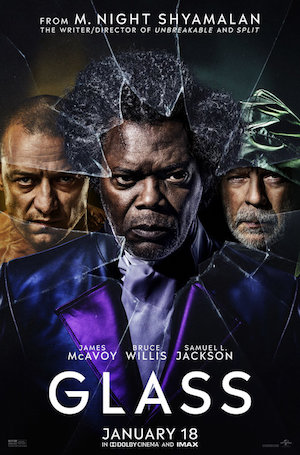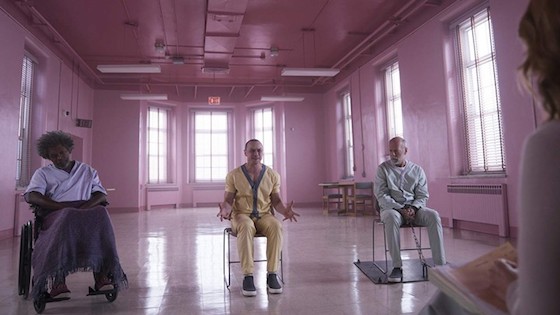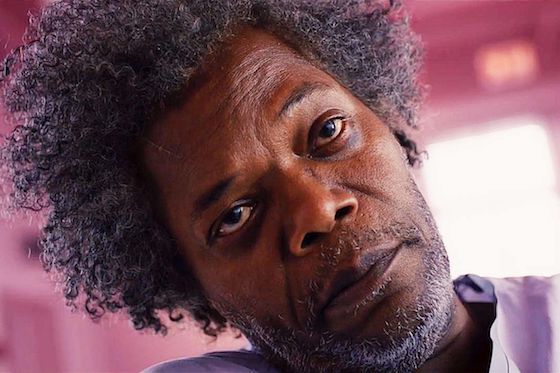M. Night Shyamalan’s twisty 1999 thriller The Sixth Sense earned him six Oscar nominations, a ton of money, and overnight household-name status. He followed that movie’s slow-burn suspense in 2000 with Unbreakable, another thriller with a steady build-up of tension and late plot twists. The last moments of that film revealed the entire plot to be a superhero/villain origin story, albeit one grounded in reality rather than spandex.
Nineteen years and several films later, Shyamalan returns to the storyline of Unbreakable with his new film, Glass. It brings back stars Bruce Willis and Samuel L. Jackson, plus James McAvoy (who headlined Shyamalan’s 2016 hit Split). They are confronted by psychiatrist Dr. Ellie Staple (Sarah Paulson), who somehow captures all three of them and is acting on a self-imposed deadline of three days to convince them they don’t have superpowers—that they’re just crazy.
The idea that Willis’, Jackson’s and McAvoy’s characters would all be brought together by fate is the first of many dubious hurdles in the narrative. Another element of the story virtually untethered to logic is that one of the girls from Split (Anya Taylor-Joy) who watched her classmates get murdered by McAvoy’s character is suddenly concerned about him.
Besides these silly script contrivances, Glass also over-explains everything by shoving uncomfortable expository dialogue in most of its characters’ mouths and constantly referencing comic books in the most obvious ways possible. I realize that the comics-as-sacred-texts thing is kind of the whole point now, the connective tissue that binds disparate franchise superhero films, but it’s also the same thing that keeps Glass from becoming a cohesive story. And since we’ve had scores of superhero movies in the last 18 years, the novelty of this approach has completely worn off.
Additionally, the tone of Glass is all over the map. McAvoy is clearly having a ball with his character’s multiple personalities, and why not? He knows what kind of movie he’s in. But nobody else is having fun; certainly not Shyamalan, who seems to keep doubling down on how “clever” and “important” his story is.
Shyamalan’s tenacity would be admirable if it weren’t so tiring. When he keeps the story focused on intimate moments with calibrated tension as he did in The Sixth Sense and his small-scale 2015 triumph The Visit, his movies succeed. But the bigger his thematic ambition, the more he seems to lose control. This time round, as in Shyamalan’s infamous 2008 The Happening (where plants attack humans in response to global warming), there are several unintentionally funny scenes that also unravel any chance of taking the story seriously.
Unfortunately, Glass is everything that the comparatively restrained Unbreakable was not. Sure Glass holds a ridiculous twist ending (or two), because that’s what everyone is expecting, right? But ultimately the script writing collapses under its own self-importance and finishes as a corny, trashy plot. If Dr. Staple is looking for a character with delusions of grandeur in this film, she might not have to look further than the director himself.
This review is part of Eric Melin’s “LM Screen” column that appears in the upcoming spring edition of Lawrence Magazine.












Comments on this entry are closed.